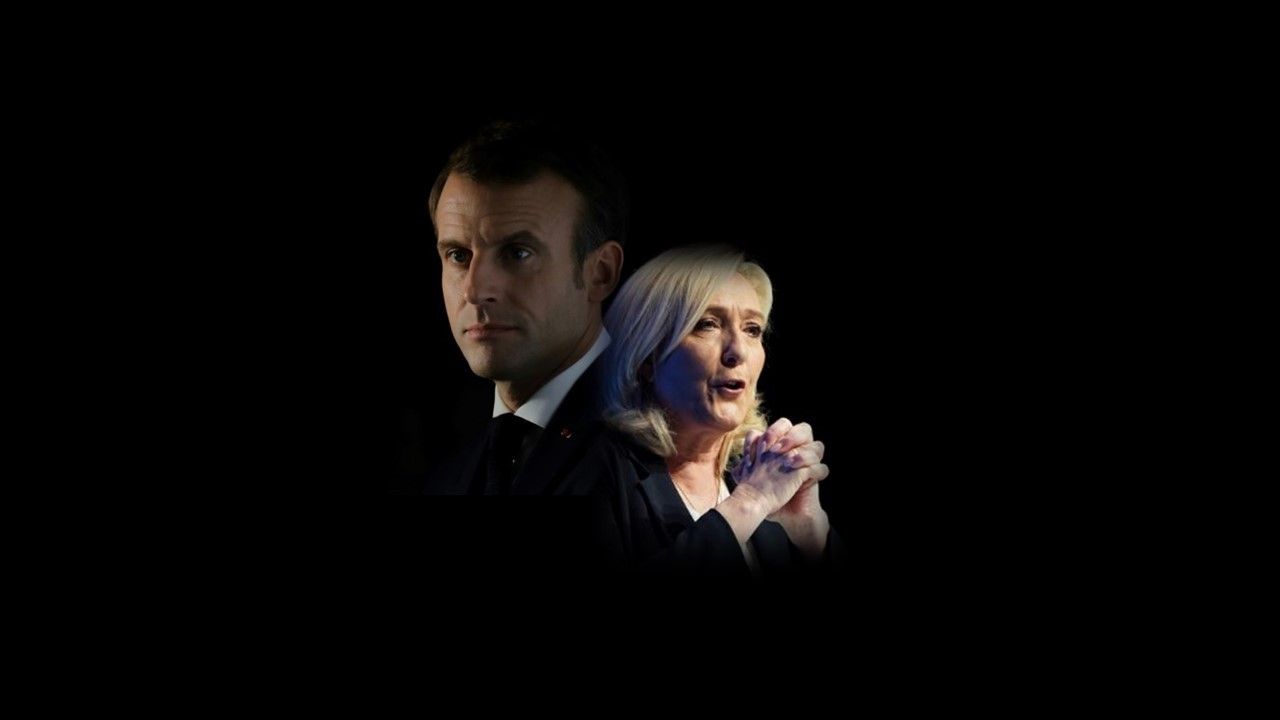The election of the extremes
Perhaps unsurprisingly, a repeat of the 2017 duel between Emmanuel Macron and Marine Le Pen has materialised, with both recording higher scores in the first round than in 2017 (27.6% and 23.4% respectively).
Emmanuel Macron benefited greatly from the collapse of the Republican party (LR), which only received 4.8% of the vote. Indeed, traditional centre-right voters flocked to support the president-candidate in a “useful vote” logic due to the rise of extreme parties. This was undoubtedly amplified by the uninspiring campaign of Valérie Pécresse, who struggled to stand out as a viable alternative to the outgoing president.
On the other hand, the strength of the far right reflects the current nature of French politics and the popularity of the ideas put forward by these candidates on immigration and security. Marine Le Pen was able to emerge as the main candidate of the far right, in particular by focusing on issues of purchasing power, to the detriment of Éric Zemmour, who did not benefit from a hidden vote as many had thought. This was ultimately crucial because a more split vote between the two candidates would not have been enough for the far right to get through to the second round.
Perhaps the surprise of the first round was the impressive score (22%) of Jean-Luc Mélenchon of the France insoumise (LFI). The far left, whose campaign has taken off in recent weeks, has undoubtedly struck a chord with young voters as well as working class people concerned about inflation, rising fuel prices and the general increase in the cost of living. Less than one percentage point behind Marine Le Pen, a union of the left would have been enough to see him reach the second round and probably win the presidential election.
The other key takeaway is the complete destruction of the traditional parties: The Republicans (LR) and the Socialist Party (PS). Both parties have fallen below 5%, which means they will even have to pay back their campaign expenses – a total humiliation. Nevertheless, they should perform better in the legislative elections as they have the party infrastructure that La République En Marche (LREM) and the Rassemblement National (RN) do not have.
Prospects for the second round
As for the second round, the result promises to be much closer than in 2017. Current polls suggest that only a few percentage points will separate the two candidates, with Emmanuel Macron holding a narrow lead.
Despite Emmanuel Macron’s impressive score, especially for an incumbent, he may have drawn on his vote reserves to a greater extent than Marine Le Pen in this first round due to the phenomenon of the “useful vote” of LR voters. This means that in reality, he will only be able to count on the total support of the Greens (4.6%) and the Socialists (1.7%). While the majority of LR voters who voted for Valérie Pécresse should vote for Emmanuel Macron in the second round, a non-negligible part of this electorate, more aligned with the ideas of Éric Ciotti (who had won the first round of the right-wing primary), is likely to vote for Marine Le Pen. The RN candidate will benefit from the votes of Éric Zemmour (7.1%) and Nicolas Dupont-Aignan (2.1%).
As a result, the outcome of the second round will be decided mainly by left-wing voters, and more particularly those who adhere to LFI. If in 2017, these voters largely respected the “cordon sanitaire” to prevent the victory of the far right, things are much less certain this time, first of all because there is a strong anti-Macron sentiment among these voters (Gilets Jaunes, privatizations, vaccine pass, energy costs, pension reform etc.). This means that many far-left voters, instead of voting for Emmanuel Macron in the second round, might abstain (which would benefit Marine Le Pen) or even vote for her (many economic policies are in fact very similar).
From this perspective, the campaign between the two rounds will be particularly interesting. On the one hand, Emmanuel Macron will seek to convince voters (including those who abstained – 26%) of the threat posed by a Marine Le Pen presidency and will certainly recall her links with Vladimir Putin. As for the RN candidate, she faces the difficult task of appealing to LFI voters while maintaining the unity of the far-right voting bloc.
In light of the fragmentation of French politics and the clash of radically different visions for the country, the future governability of France will depend on the ability of these political forces to multiply their efforts to find common ground and compromise over the next 5 years.
Félix Goodenough
Public & Politic Affairs Consultant


